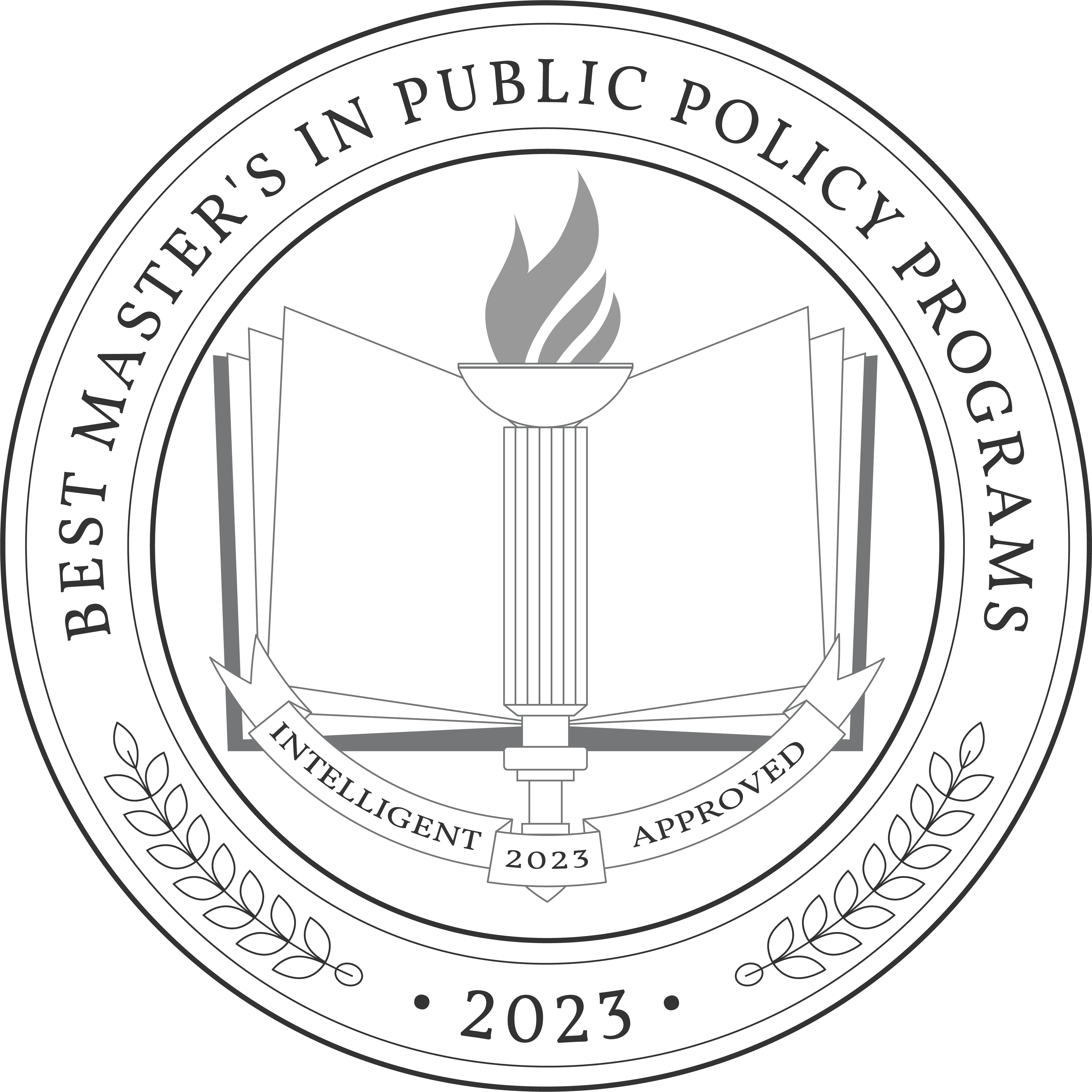Why This Matters
-
WORK IN MORE THAN A HALF-DOZEN DIFFERENT SECTORS
A Master’s in Public Policy is a versatile degree that can be taken into public service, nonprofit work, or private sector work. You could pursue a career in at least nine different sectors.
-
URBAN AND REGIONAL PLANNING JOBS GROW BY 11%
Urban and regional planning positions are growing much faster than average. The Bureau of Labor Statistics predicts 11% job growth in the field through 2029.
-
GROW YOUR EARNING POTENTIAL BY $5,000 PER YEAR
Professionals who have a Master’s in Public Policy earn $70,859 annually on average. That’s over $5,000 more than what public policy professionals with bachelor’s make on average, which is $65,224.
Our Research
We reviewed many Master’s in Public Policy degree programs, including both Master of Arts (MA) and Master of Public Administration (MPA) degrees. Our list contains hybrid, online, and traditional programs.
All of the listed programs are regionally accredited, and many also maintain a national accreditation through the Network of Schools of Public Policy, Affairs, and Administration (NASPAA). Accreditation ensures the quality of a program.
We evaluated each program on the basis of flexibility, faculty, course strength, cost, and reputation. Then we calculated the Intelligent Score for each program on a scale from 0 to 100. For a more extensive explanation, check out Our Ranking Methodology.
- 52 hours to write this article
- 71 universities and colleges we assessed
- 189 education programs we compared
The Top 24 Master’s in Public Policy Degree Programs

Discover More Options
What You Should Know About This Degree
The Master’s in Public Policy degree is a highly versatile credential that can lead to government, nonprofit, or private-sector jobs. Graduates work in all levels of government, while private-sector jobs are usually tied to corporation-government relations. Because this is such a flexible degree, programs offer a wide array of emphases.
MA in Public Policy degrees and MPA degrees are similar to one another, but they also have points of distinction. MA degrees tend to focus more on research and analysis of public policy, while MPA degrees tend to have a greater focus on the implementation of public policies. Consider your interests and future aspirations as you evaluate programs, and choose one that’s suited to your goals.
Experience is highly valued in the field of public policy, so some programs have required optional in-person experiential learning components. For example, even online programs might have a residency, seminar, or internship. Review a program’s in-person requirements before applying, and make sure your schedule allows time to complete any such requirement.
Should you choose a degree that contains an in-person internship, try to complete the internship in the area where you want to serve. Internships can be valuable networking opportunities.
What’s Next?
As you evaluate different Master’s in Public Policy degrees, consider these questions:
- How long does it take to complete this online degree? Most of these degree programs range from 30 to 45 credits. This quantity of credits usually requires two to three years of full-time study to complete.
- Are courses offered synchronously or asynchronously? These programs may offer courses synchronously or asynchronously, and many use a combination of the two modes. Synchronous courses have work that must be completed at a set time, while asynchronous coursework is done on your schedule. Consider your schedule’s flexibility as you evaluate which mode is better for you.
When you know what program you’d like to apply to, get the details on the admissions process. Contact the program or check its website to see what materials you must send in and the relevant deadlines.
Also consider how you’ll cover the cost of a degree program. Talk with programs about scholarship and financial aid opportunities that are available. You might also qualify for tuition reimbursement from an employer.